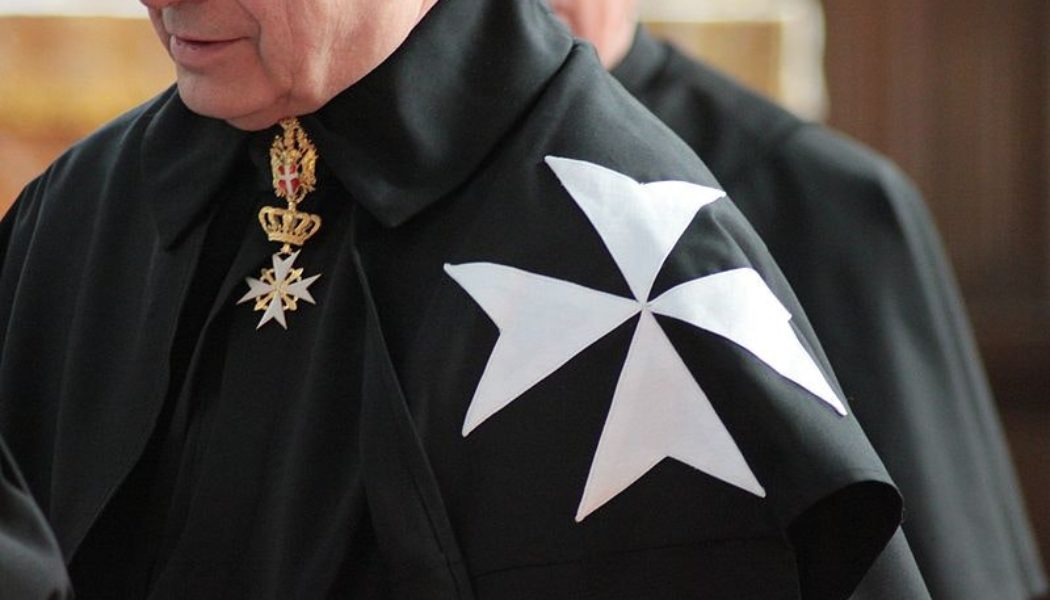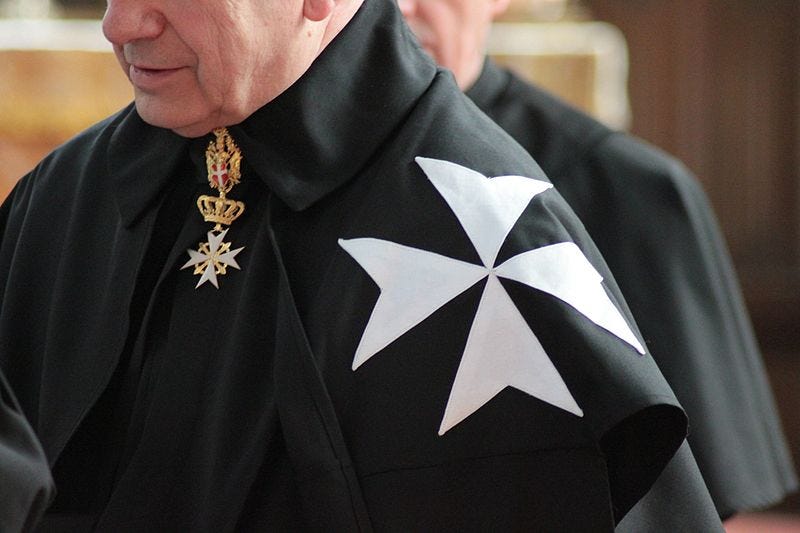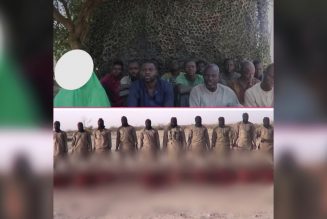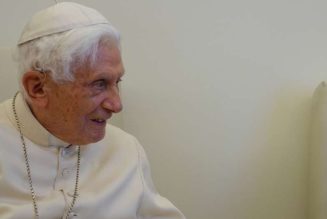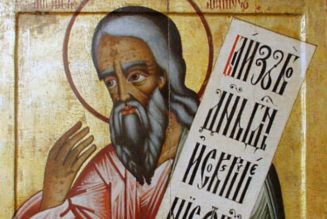Pope Francis’ cardinal delegate has refused to recognize the Order of Malta’s appointed representative to a committee reviewing the order’s draft constitution, even after members of the order made a personal appeal to the pope.
The move represents a dramatic escalation in the ongoing tension between the Vatican and the Order of Malta, which is both a Catholic religious order and a sovereign entity in international law. But when a Vatican cardinal this week unilaterally replaced the chairman of a constitutional revision committee with a candidate of his own choosing, one of the order’s most senior knights said the order’s status is under “direct attack.”
Marwan Sehnaoui, president of the order’s Lebanese association, was appointed last week by the order’s Lieutenant of the Grand Master to serve as chairman of the steering committee for the order’s constitutional reform.
In a Jan. 25 letter obtained by The Pillar, Sehnaoui informed the knights’ leaders and membership that he arrived in Rome over the weekend in order to “reach an honest and sincere agreement” with the commission, headed by Pope Francis’ special delegate, on plans for a new constitution for the order.
“All of this,” he said, “for the wellbeing of the poor, the sick, the elderly, the disabled, the refugees and migrants, that we serve, but also for the good of the Holy Father, the Church, and our Order.”
But the pope’s delegate, Cardinal Silvano Tomasi, has repeatedly refused to allow him to attend a two-day conference to discuss the draft text, Sehnaoui wrote to members of the order.
The committee was supposed to meet this week with Tomasi, whom Pope Francis nominated as his special delegate to the order in 2020, to review a new constitution, drafted by the Vatican, and to resolve an escalating crisis regarding the order’s diplomatic and governing independence. The meeting was to be a two-day session beginning Tuesday.
But according to Sehnaoui, Tomasi pressured the order’s senior leadership to revoke the new chairman’s appointment, and threatened to intervene personally if they refused. Tomasi has previously indicated that he did not agree with Boeselager’s decision to step back from the constitutional reform process, or with the knights’ decision to appoint a replacement without seeking the cardinal’s agreement.
Tomasi’s move, Sehnaoui said in his Tuesday letter, “is clearly a direct attack on the sovereignty of our Order.”
The cardinal’s decision to exclude the order’s appointed representatives from the meeting comes just after he wrote to the order last week to assure them “that it was never the intention of this commission, nor of the Holy Father, to undermine the sovereignty of the Order, which will be totally preserved.”
In an effort to avoid further conflict, Sehnaoui said he met Pope Francis in a private audience on Monday, hoping to secure the pope’s help in resolving the situation. He said he explained to the pope that “the majority of the people involved in the current commission do not have a thorough knowledge and understanding of the specificities of our Order and its activities.”
While the Order of Malta is a Catholic religious order dating back more than 900 years, it also has a unique status in international law, with the ability to maintain full diplomatic relations with nations, and a seat as a permanent observer at the United Nations. The order operates humanitarian relief efforts around the world.
But while Sehnaoui said he left his meeting with Francis “hopeful and confident,” Tomasi still refused to allow him to attend the constitutional revision meeting.
Sehnaoui wrote Tuesday that when the steering committee’s vice chair, Peter Szabadhegy, arrived at the meeting to ask Tomasi why Sehnaoui had not been invited, he was “astonished” to find that the president of the order’s Italian association, Riccardo Paterno, had been brought to the meeting by Tomasi in Sehnaoui’s stead, without either the cardinal or Paterno informing the order’s leadership.
When Tomasi declined to give Szabadhegy a “decisive” explanation either for Sehnaoui’s absence, or the Italian association president’s presence, the career diplomat left the meeting, saying he would return for Tuesday’s session only if the order’s appointed representative was invited.
“Under these circumstances, I consider that our Order is not respected, that our dignity is violated, and our future is in danger,” Sehnaoui wrote Tuesday.
While expressing his thanks that the pope had received him, Sehnaoui informed the knights that he and Szabadhegy would consult the knights on a proposal for how to move forward.
Until now, Tomasi’s interference in the order’s governance has been legally murky, with several senior knights telling The Pillar that his involvement was tolerated within the order in the hope that it would prevent a more direct move from the cardinal to abrogate the order’s sovereignty and create a diplomatic crisis.
But unless a compromise is found within the next 24 hours Tomasi’s refusal to recognize the order’s own delegates to their own constitutional process is likely to signal a total takeover of the governance of the knights.
Sources close to the order’s Grand Magistry in Rome have told The Pillar that Tomasi had already signaled his intention to dissolve the Government and Sovereign Councils of the order ahead of calling an extraordinary Chapter General to adopt his draft for a new constitution.
The Vatican’s exclusion of the order’s appointed representatives in their own constitutional reform process is a dramatic escalation in a diplomatic crisis which began in 2017, when Pope Francis intervened in the order to force the abdication of its then Grand Master, Fra’ Matthew Festing.
At that time, the pope appointed a special cardinal delegate to oversee the spiritual and constitutional reform of the Catholic religious order which has been recognised for centuries as a sovereign entity in international law of the same status as the Holy See itself.
While the order is, under the terms of its current constitution, independent of the Vatican in relation to its internal governance and diplomatic functions, it is also a Catholic religious order and as such under the spiritual authority of the Holy See, with the pope remaining responsible for its religious character.
In October last year, Pope Francis granted Tomasi sweeping powers to effectively govern the order by papal fiat, powers which, if used, would essentially nullify the order’s sovereignty and trigger a diplomatic crisis for the order.
Earlier this week, senior knights told The Pillar that “When the pope granted Tomasi these extra powers it was a point of real tension. It clearly goes against the sovereignty of the order, but there is no desire to provoke a confrontation with the Holy Father.”
“The hope was that, if the cardinal did not invoke the powers, their legality could remain ambiguous. That is looking less hopeful now, and the choice seems to be to either submit to external reform of our governance or resist.”
“The choice being forced on us is between our Catholic identity and diplomatic independence,” a senior knight said.
Join Our Telegram Group : Salvation & Prosperity
